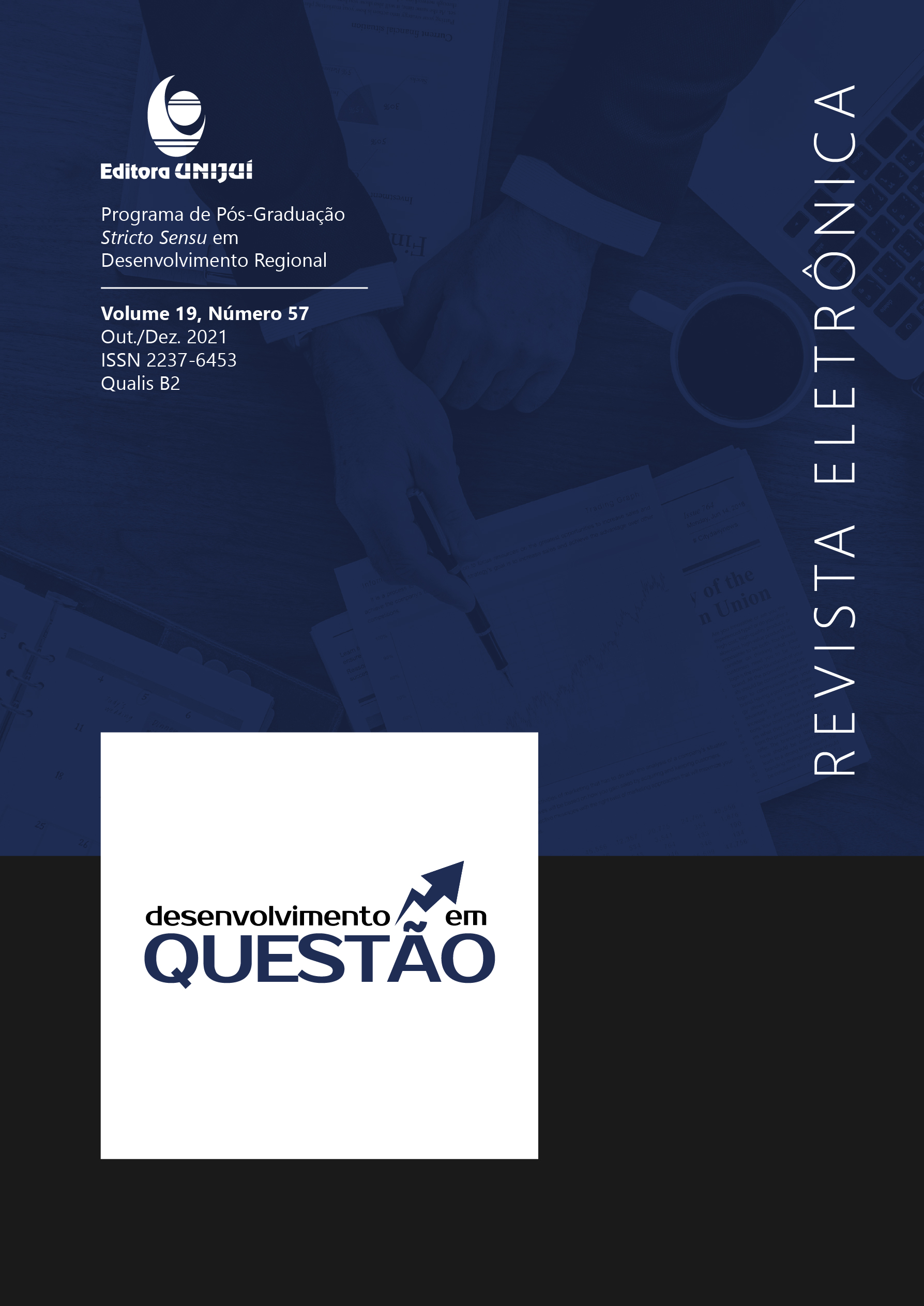Comunidades Que Sustentam a Agricultura (Csas): Materializando o Associativismo Sustentável e a Economia Solidária?!
COMMUNITIES THAT SUPPORT AGRICULTURE (CSAs): MATERIALIZING SUSTAINABLE ASSOCIATION AND THE SOLIDARY ECONOMY?!
DOI:
https://doi.org/10.21527/2237-6453.2021.57.11935Palavras-chave:
Desenvolvimento Regional. Socioambiental. Agricultura Familiar. Gestão Compartilhada. Ajuda Mútua.Resumo
A aliança entre consumidores buscando alimentos saborosos, nutritivos e orgânicos e os agricultores familiares, desvalorizados social, econômica e culturalmente, representa um passo significativo no momento atual, pois pactuam com um organismo agrícola sustentável, denominado, no Brasil, Comunidades que Sustentam a Agricultura (CSAs). Esse modelo agrícola orgânico e natural, de circuito curto de produção, que elimina atravessadores, é alicerçado nos valores da economia solidária, da autogestão e da ajuda mútua. O presente artigo tem como objetivo avaliar a sustentabilidade das CSAs pesquisadas nas dimensões social, ambiental e econômica buscando constatar a efetividade dos princípios e dos valores da economia solidária. Como lócus da pesquisa, foram determinadas duas comunidades do Estado de São Paulo. O desenho metodológico compreendeu visitas às CSAs e a aplicação de questionários destinados aos agricultores responsáveis pelas CSAs abordando as seguintes categorias: constituição, produção, registros e contabilidade. Foram trabalhadas pesquisas qualitativa e quantitativa como metodologias para descrever as ações dos gestores, o período e as regiões estudadas, bem como para aferir as similaridades e as diferenças numéricas das CSAs. Assim, constatou-se que essas organizações são constituídas; funcionam há mais de cinco anos; têm área superior a quatro hectares e meio; são constituídas por mais de três agricultores e de 35 coagricultores; os agricultores são assalariados; e não usam agrotóxicos. Esses resultados permitiram estabelecer parâmetros para subsidiar melhorias e aperfeiçoamentos na funcionalidade das CSAs pesquisadas por meio da apresentação de propostas para otimizar recursos e de avanços nas pesquisas acadêmicas em prol desses modelos de organismos agrícolas.
Downloads
Publicado
Como Citar
Edição
Seção
Licença
Ao publicar na Revista Desenvolvimento em Questão, os autores concordam com os seguintes termos:
Os trabalhos seguem a licença Creative Commons Atribuição 4.0 Internacional (CC BY 4.0), que permite:
Compartilhar — copiar e redistribuir o material em qualquer meio ou formato;
Adaptar — remixar, transformar e criar a partir do material para qualquer fim, inclusive comercial.
Essas permissões são irrevogáveis, desde que respeitados os seguintes termos:
Atribuição — Atribuição — os autores devem ser devidamente creditados, com link para a licença e indicação de eventuais alterações realizadas.
Sem restrições adicionais — não podem ser aplicadas condições legais ou tecnológicas que restrinjam o uso permitido pela licença.
Avisos:
A licença não se aplica a elementos em domínio público ou cobertos por exceções legais.
A licença não garante todos os direitos necessários para usos específicos (ex.: direitos de imagem, privacidade ou morais).
A revista não se responsabiliza pelas opiniões expressas nos artigos, que são de exclusiva responsabilidade dos autores. O Editor, com o apoio do Comitê Editorial, reserva-se o direito de sugerir ou solicitar modificações quando necessário.
Somente serão aceitos artigos científicos originais, com resultados de pesquisas de interesse que não tenham sido publicados nem submetidos simultaneamente a outro periódico com o mesmo objetivo.
A menção a marcas comerciais ou produtos específicos destina-se apenas à identificação, sem qualquer vínculo promocional por parte dos autores ou da revista.
Contrato de Licença (para artigos publicados a partir de 2025): Os autores mantêm os direitos autorais sobre seu artigo, e concedem a Revista Desenvolvimento em Questão o direito de primeira publicação.











